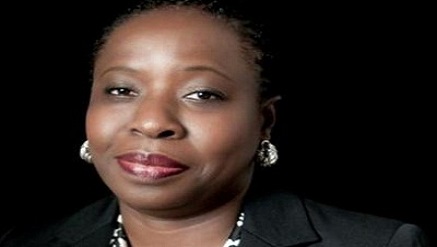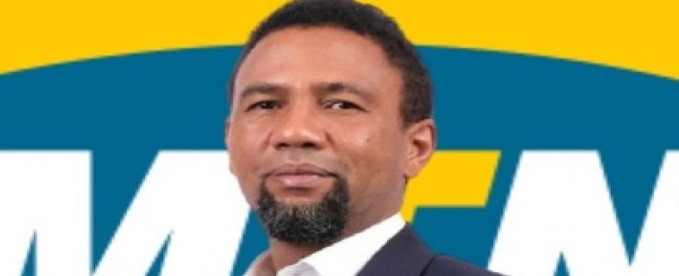Telecom
Researchers Increase Fiber Optic Networks Capacity Limits by 20%

Engineers at UC San Diego’s Qualcomm Institute, apart from breaking the supposed limits of fiber optic data transmission, they utterly increased the power of optical signals almost twenty times the base level.
Mat Smith’s report in engadget.com shows that the engineers have usually cranked up the power of the signal to send and receive data faster.
“However, at one point, that power increase starts to create interference, degrading whatever’s getting send to the point of not delivering the data at all. As more light is beamed through cases, the amount of interference between carriers increases — at some point, the data becomes so distorted that it can’t be untangled and decoded by the receiver. This time, engineers were able to send the information 7,400 miles without the need for pricey electronic regenerators to boost the signal.
The breakthrough here comes from wideband “frequency combs” that keeps signal distortions predictable (and thus reversible) and the end of the line — and it means the capacity of the world’s fiber optic networks could gain a very a substantial boost. The Qualcomm Institute’s Nikola Alic, a lead author on the paper, called current fiber optic systems “a little like quicksand… the more you struggle, the faster you sink.”
“The more power you add to the signal, the more distortion you get, in effect preventing a longer reach. Our approach removes this power limit, which in turn extends how far signals can travel in optical fiber without needing a repeater.” Electronic repeaters are an expensive way of keeping a signal going, but don’t solve the issues of signal distortion. These experimental “frequency combs” could do exactly that, according to the report in www.engadget.com.
Telecom
PAT Taps Osi as CEO

Pan African Towers (PAT), a Nigerian infrastructure provider serving 9mobile and Spectranet, has appointed Echezona Osi as chief executive officer.

Echezona Osi
Adefolarin Ogunsanya, company’s, board chairman, explained in a statement that Osi would succeed Oladipo Badru, whose tenure lasted nine months in acting CEO position. Osi has more than 28 years of experience in the telecommunications sector across various regions of Africa.
Prior to his appointment as CEO, he had served as the head of network deployment at Airtel Nigeria, operations director and chief technical information officer at MIC Tanzania, chief technology officer roles at IPT PowerTech Nigeria, Rhino Niger Networks and Biswal Nigeria.
He obtained a degree in electrical/ electronic engineering from the University of Benin and a postgraduate diploma in data science and business analytics from the University of Texas.
Telecom
NCC Introduces N10m Licence Fee for Bulk SMS Service

Companies sending bulk international text messages, also known as Application-to-Person (A2P) messages, will now have apply for a licence that costs N10 million.

This is part of new rules introduced by the Nigerian Communications Commission (NCC) aimed at cleaning up the system, fighting fraud, blocking spam messages and stopping money from leaving the country unchecked.
These A2P messages are the kind customers get from banks, online stores, hospitals and political campaigns, automated texts sent from apps to their phones.
According to the commission, the bulk international text message system has been poorly regulated, allowing misuse and invasion of privacy.
“The International SMS Service Ecosystem in Nigeria has not been fully brought under regulatory control. It has been observed that the excessive use of the Short Message Service has led to fraud, spam and illegal activities,” the NCC said.
The regulator warned that without action, the problem would worsen as more people use mobile phones and digital services.
To solve this, the NCC is creating a central platform, or gateway, through which all international bulk text messages must pass through.
The agency said this would help to monitor messages in real time, ensure proper fees are paid, and make sure the money stays in Nigeria where it can contribute to the economy.
As part of the incoming change, service providers must follow strict rules, including strong data protection, spam filters, and message encryption.
Also, they must also work with local mobile networks and make sure all messages come from a verified sender
The NCC warned that any message without a proper sender ID will be blocked and not delivered to users.
To protect users from unwanted texts, the new rules say companies must get clear permission before sending any promotional content.
The rule also says people must also be able to choose whether they want to receive such messages or not.
Companies are now required to keep records of all messages for at least six months and must clearly state all charges involved.
The NCC said fees for help requests, cancellations, or service info must be transparent and not include hidden charges.
The commission will issue licences to several providers to encourage healthy competition but may limit new licences if needed.
Only companies that show they can stop fraud and safely deliver messages will be allowed to operate. They must also regularly report their message traffic and finances to the NCC.
It warned that any company that breaks the rules risks getting fined, suspended, or having its licence revoked.
Offences like charging illegal tariffs, ignoring security rules, or avoiding taxes will be punished, the NCC said.
The commission added that the new rules follow the Nigerian Data Protection Act 2023 and support the federal government’s goal of strengthening cybersecurity and controlling Nigeria’s digital space.
The framework will also be reviewed from time to time to keep up with new technology and market trends.
Telecom
MTN Nigeria Targets $1Bn Cloud Market with Largest Modular Data Centre

MTN Nigeria has launched what it claims is the country’s largest prefabricated modular data centre, marking a bold push into the country’s fast-growing cloud market and taking aim at global giants such as Amazon Web Services, Microsoft Azure and Google Cloud.

Karl Toriola, CEO, MTN Nigeria.
The shift comes as demand for cloud services in Nigeria soars — driven by the uptake of mobile apps, fintech tools and e-learning platforms — while foreign providers have become costlier in the wake of the naira’s sharp devaluation.
“This is one of the biggest data centres in West Africa and probably one of the biggest in Africa,” said Karl Toriola, CEO, MTN Nigeria.
He described the new Tier III-certified facility, with locally hosted cloud services, as “transformative for the technology ecosystem in Nigeria and very supportive of the federal government’s agenda”.
MTN Nigeria, the country’s largest telecoms provider, has so far invested $120m in the first phase, delivering an IT load of 4.5MW. A second phase, set to double capacity to 9MW, is budgeted at $135m.
“We already have data centres that are running our existing capacities,” Toriola said.
“We will go to 9MW in short order, possibly 14MW, and we can expand even further.”
He said the facility would allow local hosting for tech developers, large enterprises including banks and oil companies, and government agencies — markets long dominated by foreign cloud providers.
“Multinational companies such as Netflix, Facebook and Instagram can also host a lot of their data here. That improves the quality of service and reduces the cost of storage,” he added.

 Broadcasting1 day ago
Broadcasting1 day agoNigeria Week Ahead: Inflation, Oil and Naira in focus

 News1 day ago
News1 day agoEFCC: Accusations Against Our Chairman Are Baseless and Misleading

 General News9 hours ago
General News9 hours agoWoodhall Capital and Partners Launch ₦1.5Bn Fund

 General News9 hours ago
General News9 hours agoAM Best Reaffirms Stable Outlook for Cyber Insurance Market

 News9 hours ago
News9 hours agoFirstBank, NLNG, Shell back QEDNG Creative Powerhouse Summit

 Telecom9 hours ago
Telecom9 hours agoMTN Nigeria Targets $1Bn Cloud Market with Largest Modular Data Centre

 E-Business9 hours ago
E-Business9 hours agoFirm Highlights Top Risks of Quantum Computing

 E-Financial9 hours ago
E-Financial9 hours agoAfrica Launches PAPSSCARD, First Pan-African Card Scheme













